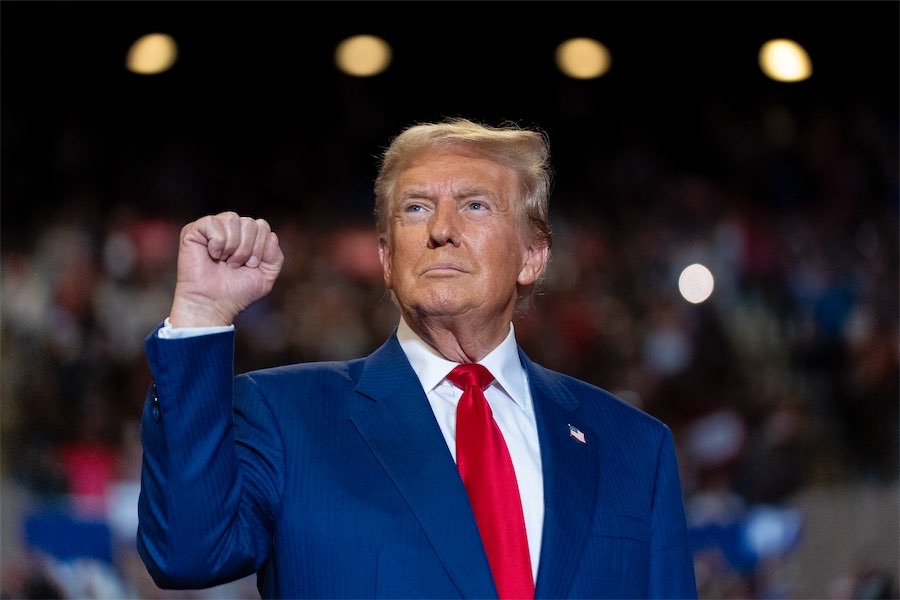
Donald Trump’s win will make 2025 even more challenging for Anthony Albanese, says political columnist MICHELLE GRATTAN.
Early Wednesday evening, Queensland Nationals senator Matt Canavan raced down the Parliament House stairs to collect a bag of McDonald’s from an Uber. To celebrate Trump’s victory, he called out as he ran.
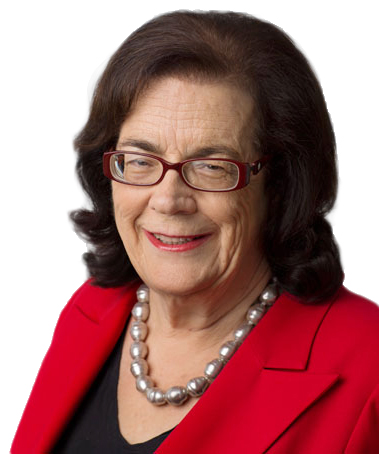
If any Labor people were eating McDonald’s, it would have been for comfort food as they contemplated difficult times.
Donald Trump’s triumphant return to the White House is mostly bad news for Anthony Albanese and his government, already facing a challenging 2025 election year.
Let’s be clear: officials are reassuring themselves Trump’s ascendancy won’t shake the fundamentals of the Australian-American alliance. That is driven by long-term mutual interests, which remain through the thick-and-thin of political turbulence in one or other country.
But the Trump administration will be complicated for the prime minister to handle.
Meanwhile, Labor won’t miss a few election messages from the result, despite the big differences between the two countries (especially our compulsory voting system). High cost of living was a political killer, as was people feeling worse off than before. Trump’s much repeated question, “Are you better off than you were four years ago?” resonated. Voters were sour and distrustful; alienated men are becoming a hard constituency for a party of the left.
Trump relates to other leaders in a very personal way. US watcher Bruce Wolpe, speaking ahead of the result, warned a Trump-Albanese relationship would be “rocky at the start”. Trump would be briefed on past Albanese comments. (These include Albanese saying, in 2017, Trump “scares the shit out of me”.) Also, “If Trump looks at the agenda of the Albanese government, it is a mirror image of Joe Biden’s domestic policy agenda adjusted for realities in both countries”.
Two former prime ministers, Malcolm Turnbull and Scott Morrison, successfully dealt with President Trump Mark 1. Morrison was a natural fit and Trump feted him. Turnbull mixed an appeal to their common transactional business backgrounds, with some straight-out bullying ( the latter to persuade Trump to abide by an existing deal on refugees).
During those years Australia also had the advantage of having as ambassador Joe Hockey, who had a close relationship with the Trump White House.
The path for Albanese to establish a personal relationship with Trump is unclear.
One early test may be the Trump administration’s attitude to current ambassador Kevin Rudd. When, earlier this year, Rudd’s past scathing critique was put to him. Trump said, “if he’s at all hostile, he will not be there long”.
Rudd won’t be “at all hostile”. He’s been working assiduously to foster relations with the Trump camp. The government is determined to keep him in place, hoping the Trump team will let bygones be bygones.
Rudd’s office on Thursday issued this rather extraordinary statement:
“In his previous role as the head of an independent US-based think tank, Mr Rudd was a regular commentator on American politics.
“Out of respect for the office of President of the United States, and following the election of President Trump, Ambassador Rudd has now removed these past commentaries from his personal website and social media channels. This has been done to eliminate the possibility of such comments being misconstrued as reflecting his positions as Ambassador and, by extension, the views of the Australian Government.
“Ambassador Rudd looks forward to working with President Trump and his team to continue strengthening the US-Australia alliance.”
Another, more substantial test of the Trump-Albanese government relationship is likely to be the tariff regime Trump has foreshadowed. Previously under Trump, Australia was able to negotiate exemptions from tariffs for its steel and aluminium. Australia will lobby hard for special consideration again.
When Trump turns his eyes to the United States’ allies, there is a general expectation the AUKUS pact will be safe. It is long term, with support from both sides of Congress; there is no US interest in disturbing it – indeed the US is doing well financially out of it.
Former head of the defence department and one-time ambassador to the US Dennis Richardson, points out the Trump presidency will end several years before the Americans are due to hand over the first of the Virginia Class submarines to Australia.
While there’ll be general pressure on allies to boost their defence budgets, Richardson says Australia is already spending 2 per cent of GDP and is committed to increasing it.
In economic terms, like other countries Australia will be affected by whatever fallout the Trump program brings for the international economy. But predicting exactly what will happen is near impossible, as Reserve Bank Governor Michele Bullock made clear on Thursday when questioned by a testy Greens senator Nick McKim, who wanted precision.
“Our initial feeling is that if he does some of what he’s said, maybe it doesn’t have a lot of implications. If he’s more extreme, maybe it does,” Bullock told an Senate estimates committee hearing.
Assistant governor Christopher Kent explained further: “One of the big effects [of Trump’s stated tariff policy] is on China. But you can’t imagine the Chinese will do nothing. […] There can be offsetting things and we don’t know.”
Independent economist Chris Richardson sees the “vibe” of uncertainty as a defining feature of the future with Trump. The volatility of his presidency will affect the decisions of nations, business, even families, he says.
At all levels, “there will be good reason to be a bit more careful with your decisions in a Trump world”. As businesses and individuals become more risk averse, ultimately the cost is a loss of returns, Richardson says.
That’s likely to be the case in one major policy area of particular importance to Australia: climate change. Trump’s flagged he would want to take the US out of the Paris agreement once again. His presidency could throw international efforts to contain global warming into disarray. Climate change Minister Chris Bowen has already been coy about whether he will announced Australia’s 2035 emissions reduction target in February, as required. Now the timetable, and the ambition of the target, will come further into question.
Asked on Thursday whether he’d commit to announcing a 2035 target before the election, Albanese said “we’re focused on our 2030 target”.
Albanese had a phone call with the president-elect on Thursday morning. “We talked about the importance of the Alliance, and the strength of the Australia-US relationship in security, AUKUS, trade and investment. I look forward to working together in the interests of both our countries,” the prime minister said later on social media.
Albanese told reporters: “President Trump has run a campaign based on change and he’s made it clear he’s going to do things differently – so we shouldn’t be surprised as things change.” The prime minister is in no position to say so, but probably Trump still “scares the shit” out of him.![]()
Michelle Grattan, Professorial Fellow, University of Canberra. Republished from The Conversation.
Who can be trusted?
In a world of spin and confusion, there’s never been a more important time to support independent journalism in Canberra.
If you trust our work online and want to enforce the power of independent voices, I invite you to make a small contribution.
Every dollar of support is invested back into our journalism to help keep citynews.com.au strong and free.
Thank you,
Ian Meikle, editor
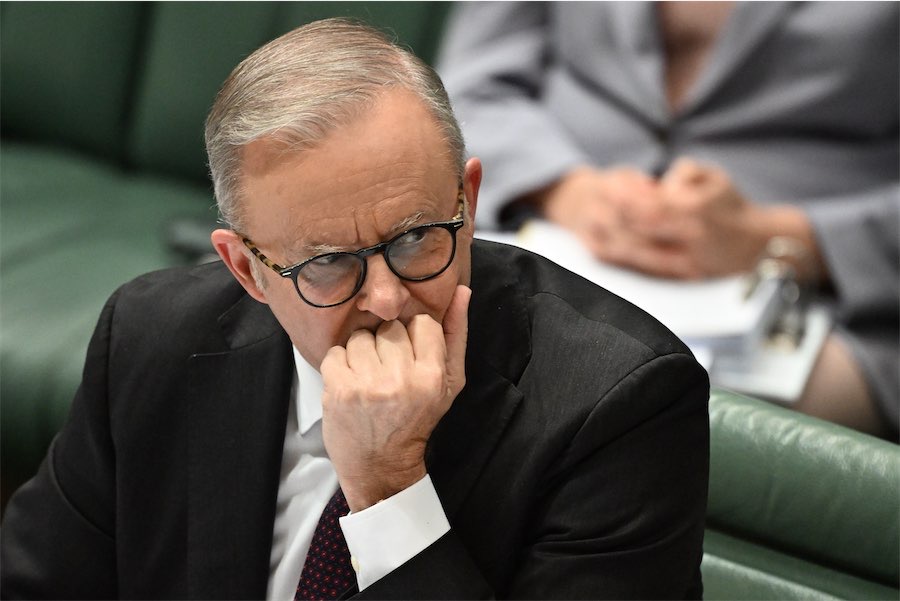
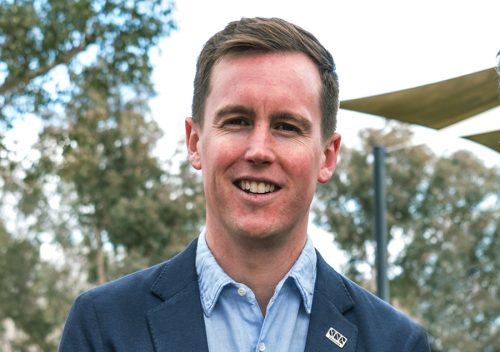
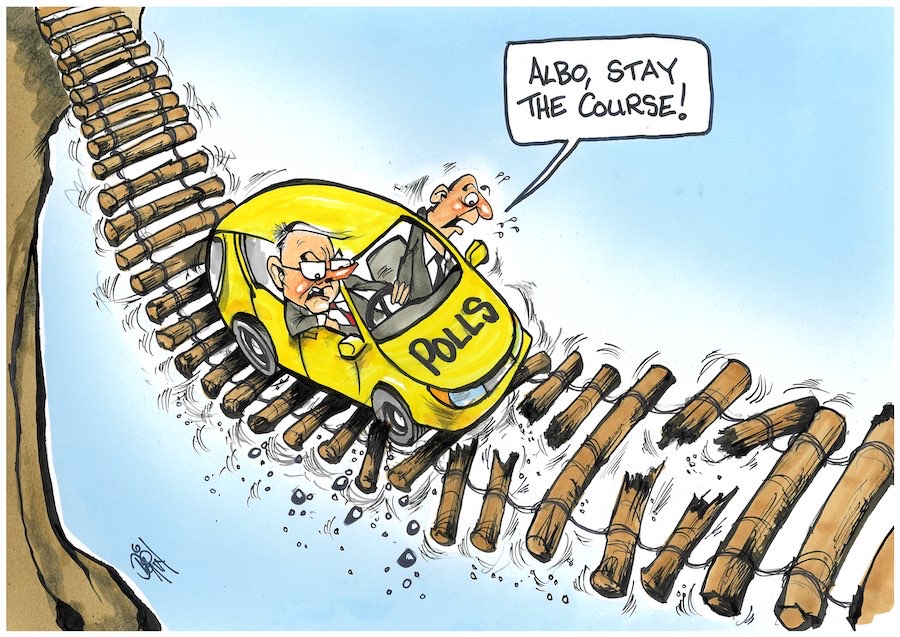




![Rasa Kabaila was the youngest personal carer at a war veterans home at age 16, reports ELIZABETH KOVACS.
“When I was 15, I did work placement in a pediatric ward and then I did another placement at a war veterans home in Canberra,” she says.
“As much as I found it interesting, I found it all quite confronting.
“I was always told by people in [the war veterans home] that they hoped I would become a nurse,” she says.
“I was the youngest carer employed there at the time and I was working in the high-care dementia wing.”
To read on about Rasa's incredible experience as a nurse, visit our website at citynews.com.au or tap the link in our bio! 👩⚕️
#nurse #nurselife #nursepractitioner #nursestories #canberranews #citynews #localstories #canberrastories #Citynews #localnews #canberra #incrediblewomen #journalism #canberracitynews #storiesthatmatter #canberralocals](https://scontent.cdninstagram.com/v/t39.30808-6/476555403_1166125822189636_4572425384807928365_n.jpg?stp=dst-jpg_e35_tt6&_nc_cat=108&ccb=1-7&_nc_sid=18de74&_nc_ohc=HA3tfJQXjyoQ7kNvgFnY2Pt&_nc_oc=AdhPwYrv0jpuB21dwd6vxcKN99D-5L4jo23xt1brwX3duw3WCbrk3aX6hUNOMJO4bic&_nc_zt=23&_nc_ht=scontent.cdninstagram.com&edm=ANo9K5cEAAAA&_nc_gid=Amc-KmfMbcUgE_JKG_dQ8lV&oh=00_AYARWbwhxbUHDsW_fum1R5LmdMLWEGlPg6Eod73W0FQodg&oe=67B5C10E)
Leave a Reply